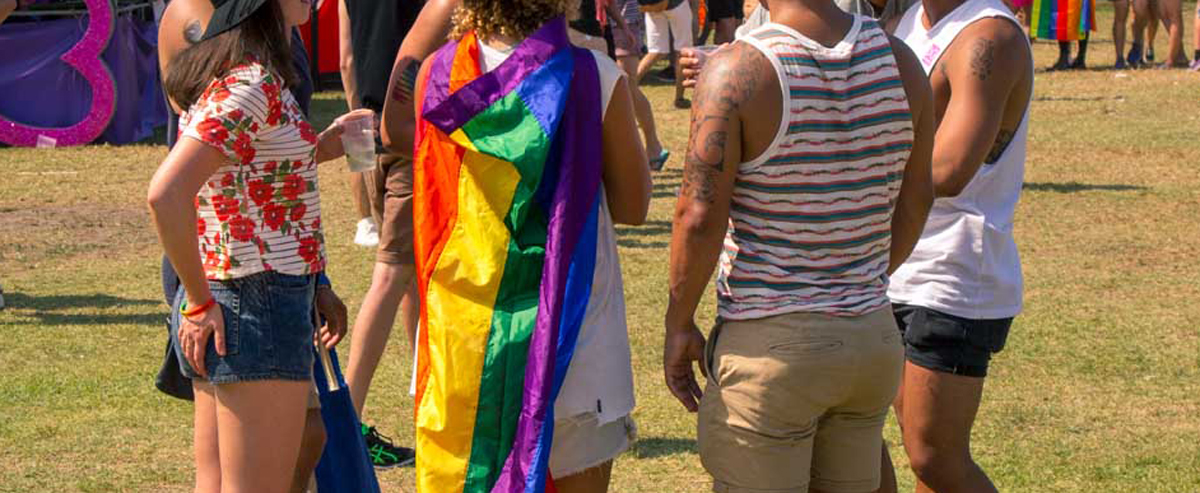LGBTI and anxiety


Attending a support group for the first time is always going to be difficult, but for someone with an anxiety disorder, even just the logistics of getting there can be a challenge in itself.
“We had one woman who’s very anxious about public transport testing her nerves to actually get to the group, and she was overcoming that anxiety each month,” said Tom Skelton, who is a facilitator at one of WayAhead’s Anxiety Disorder Support Groups in Marrickville, as well as an LGBTI – focused support group in Surry Hills.“I think it’s a real challenge because you’re asking people to do two things – you’re asking them to go to a venue they’ve never been to before with people they’ve never met, to talk about things they might not have talked about before,” he said.
“You’re also asking people to disclose something they may find shameful, it’s a very ‘only me’, kind of isolating experience. I always say to them at the start of the group ‘I’m very glad that you came because it would have taken a lot of effort’. Some people are so anxious they can’t even leave their house, so to have people come to a group that requires them to go to that effort, I think it’s really cool.”Tom says he’s had a “pretty rocky” history with his own mental health, having struggled with anxiety, depression and Obsessive Compulsive Disorder (OCD) since he was a child, and this was a factor in his decision to become a facilitator.
“I wanted to join in the cause and give a little bit back as well,” he said. “It was actually through my partner who works in the HIV field… he had said that there’s a good group doing some great work in mental health.”
Tom knows from his own experience that finding a treatment that works can be a difficult process with a lot of trial and error, and he encourages his group members to think about what they want out of the meetings and tries to make sure that they have the experience that they want.
“I’ve been through the public health system, through the private system, I’ve been to hospitals and done CBT [cognitive behaviour therapy] programs, different types of counselling, psychiatrists, medication and all of those sorts of things. I’ve been on more medications than I can count so I can actually relate to people’s concerns about side effects and coming off them and that sort of thing…my history is extensive but I think it’s useful.”
LGBTI people in particular are three times more likely to experience depression or anxiety heterosexual people, and this is largely due to the level of discrimination they still face. This does mean there is a need for support groups that address LGBTI-specific concerns. Tom says that although the group in Surry Hills is still in “its fledgling stage”, he is pleased with the progress its members are making and says the feedback from them so far has been positive.
“We’ve got a few people coming but we could do with some more,” he said.
“Just the fact that they will go out for a coffee with other group members is also a great sign. I’ve heard of other groups that do really good work and they are more focused on mindfulness and manifestation and all that. I don’t personally find that helpful for myself, that’s not the path that I go down…it’s more a relating, person-centred path, and then give the kind of meeting back to the clients, saying ‘OK, what would you like to get out of this?’ and from what I’ve found they just want to talk, they don’t necessarily want too much focus on tools and meditation.”
Tom admits there are parts of the job that he has found challenging.
“I’m a people-pleaser and I don’t like silence, so my challenge was actually to just let the group run without much disclosure from me or too much interaction. I get anxious that people will just sit there in silence, and then what will we talk about? But sometimes with the group you just need to give people space without talking over them.
Despite the challenges, Tom finds even the smallest signs of progress rewarding and encourages anyone with anxiety to think about attending a meeting- even if they don’t want to talk straight away.
“There have been many people that have said that they are just a little bit lighter or a little bit less burdened than when they arrived. I’m grateful for any sort of relief that people can get, “ he said.
“If I could say anything to them before they arrive, it would be that it you can be reserved to begin with, there’s no mandatory requirement to participate as such because just getting there is a good start.”
You can find out more about WayAhead’s Anxiety Support groups on our website, by calling our Anxiety Disorders Information line on 1300 794 992, or by emailing supportgroups@wayahead.org.au
by Anita Senaratna
Back to most recent edition
Newsletter
Stay up to date
Sign up to our Mind Reader newsletter for monthly mental health news, information and updates.